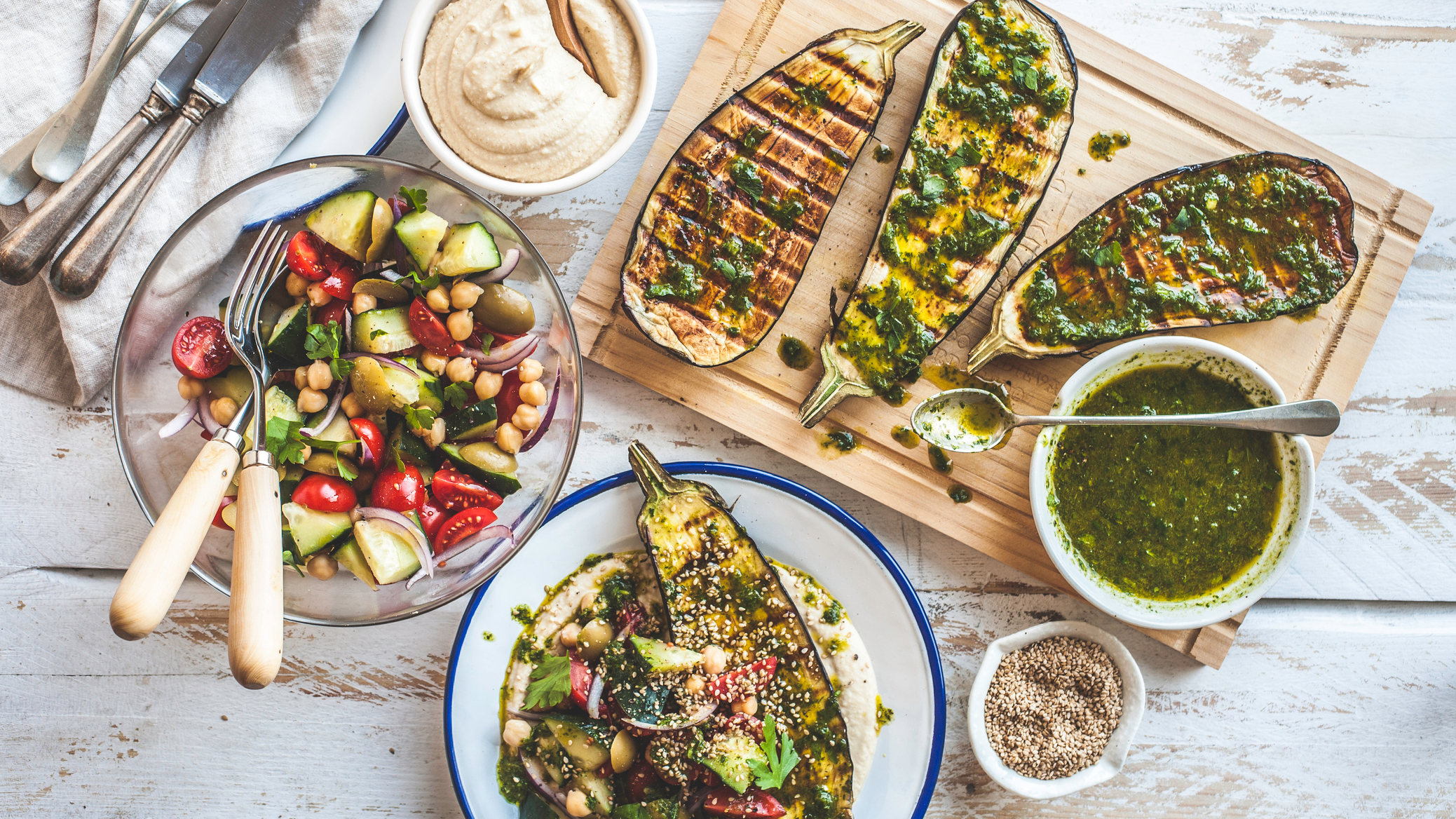Veganuary: Are there any benefits to trying the vegan diet for one month?
The benefits and pitfalls of going vegan for a month: Can Veganuary help with weight loss and general health?


Start your week with achievable workout ideas, health tips and wellbeing advice in your inbox.
You are now subscribed
Your newsletter sign-up was successful
Veganuary is becoming more popular every year. The emerging health trend challenges people around the world to try going vegan for just one month. Originally created in 2014 by the Veganuary non-profit organisation, the main challenge has almost doubled in participation every year since it began as a way to promote and educate people about veganism.
But before you snap up one of the best vegan cookbooks, you may wonder whether there are any benefits to be gained by trying Veganuary. There's all sorts of health claims about veganism, from curing asthma to clearing up your skin, but it's tough to verify the truth from the hearsay.
However, it's proven the vegan diet can help with weight loss. One study, published in the European Journal of Clinical Nutrition, found vegans who took a vitamin B12 supplement lost an average of 9.5lbs in 18 weeks, while the omnivorous control group lost just 0.2lbs.
Another study found children following the vegan diet lost 6.7 pounds (3.1 kg), on average, over the course of four weeks, an increase of 192% compared to the omnivorous control group. More studies back up the vegan diet as a great way to start losing weight.
Vegans also benefit from good gut health thanks to an increased intake of dietary fibre. This Oxford study also showed vegans have higher intakes of fibre, vitamin B1, folate, vitamin C, vitamin E, magnesium and iron. The vegan diet is also obviously better for the environment than eating meat, which requires land and industry to raise, slaughter and process livestock.

However, with benefits come pitfalls. Restricting entire food groups from your diet means you need to be forward-thinking when planning meals. Oreos, French fries and potato chips (when not fried in animal fats) are vegan, but they're not exactly good for you. It's entirely possible to have a vegan diet which is not very healthy.
You need to ensure your diet has an adequate amount of protein, carbohydrates and healthy fats. This can be difficult when cutting out animal products, as they're all great sources of protein, but nuts, tofu, seitan, lentils pulses and nut butters are all viable places to get your protein fix.
Start your week with achievable workout ideas, health tips and wellbeing advice in your inbox.
The emphasis is on you to decide if the vegan diet is right for you. If you're considering going vegan, plan your diet out appropriately, researching which foods and supplements will give you all the nutrients you need and ensuring you're getting enough of them in your diet. Why not give it a try for one month?
Liked this?
- Worried about heart health? Here's how to lower cholesterol
Matt Evans is an experienced health and fitness journalist and is currently Fitness and Wellbeing Editor at TechRadar, covering all things exercise and nutrition on Fit&Well's tech-focused sister site. Matt originally discovered exercise through martial arts: he holds a black belt in Karate and remains a keen runner, gym-goer, and infrequent yogi. His top fitness tip? Stretch.
